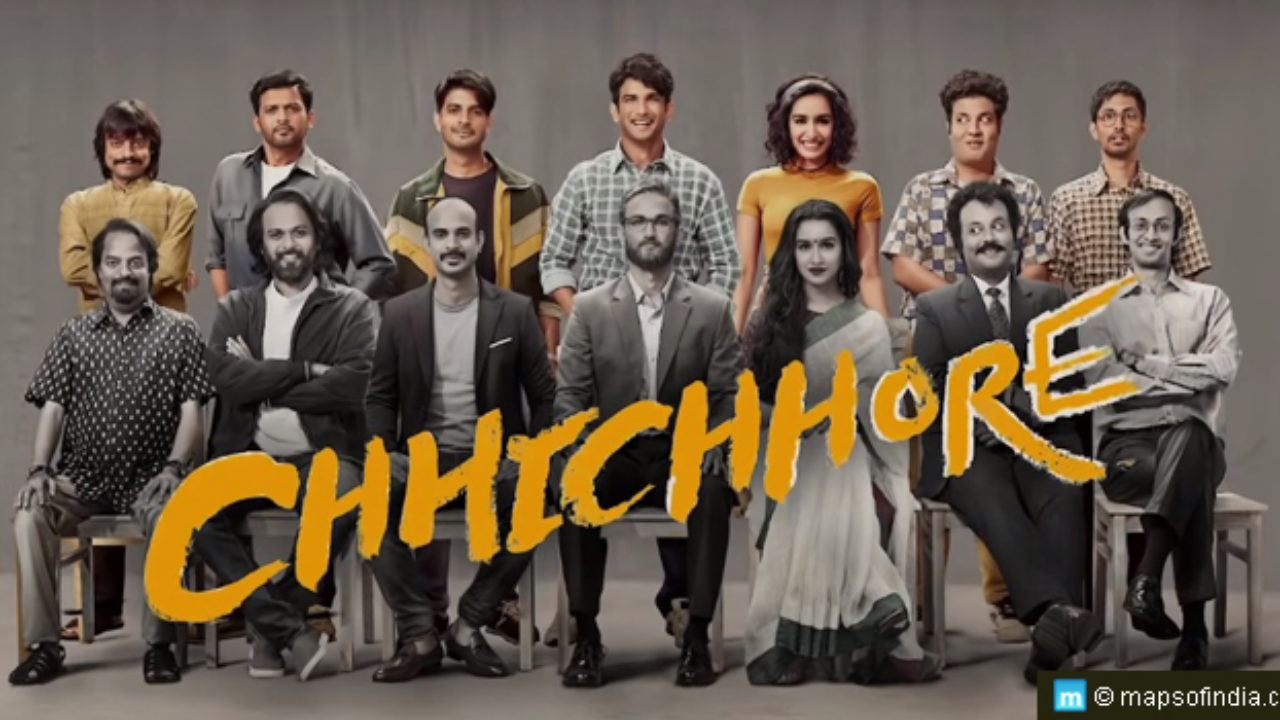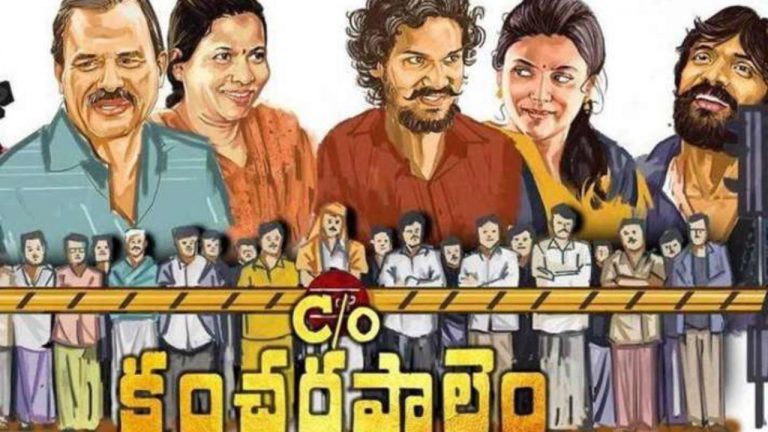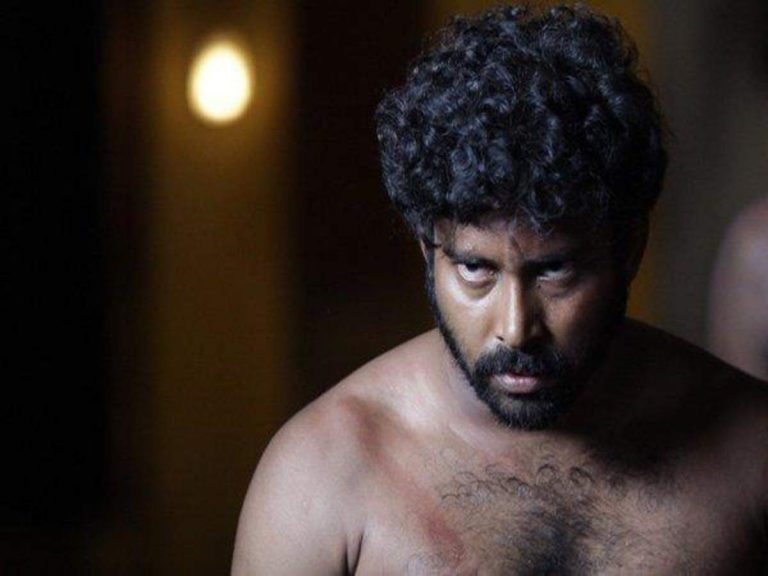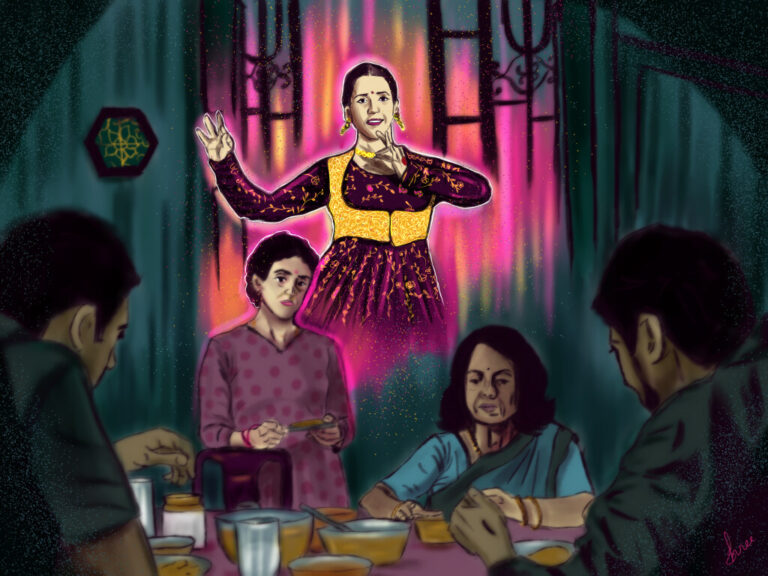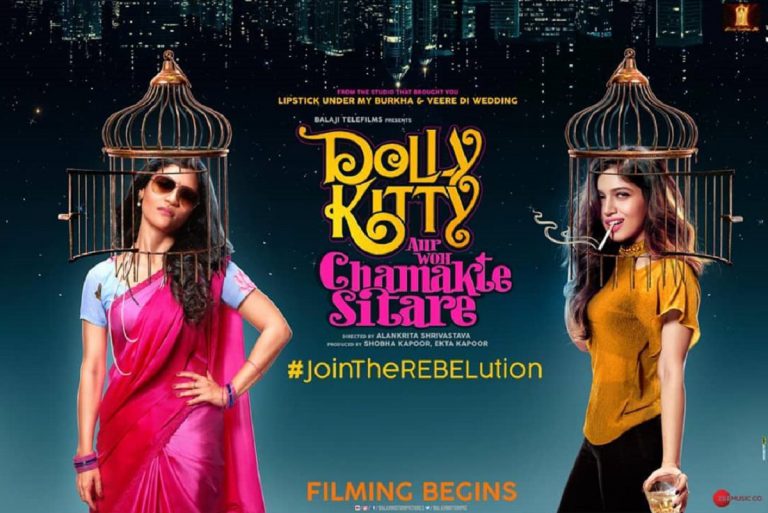Chhichhore: A film we need to talk about

Chhichhore was one film where we got to see the late actor Sushant Singh Rajput’s promising performance that went underappreciated, possibly because of the alleged prevalence of nepotism within the inner echelons of the film industry which prevents rewards from flowing to any an imagined ‘outsider’.
However, notwithstanding the petty partisan motives due to which Sushant Singh’s hard work and performance might have been sidelined, the film’s plot is still deeply problematic and terrifying from the perspective of mental health. It compels us to ask ourselves a few questions about gender and emotional well-being.
What does it mean indeed, to be a boy or a man in today’s times? That’s a question we have got to ask ourselves time and again, for films like Chhichhore and Kabir Singh are giving us a very rotten and flawed perspective. It becomes difficult to articulate how exactly a boy would feel oppressed by a patriarchal social setup, but a film like Chhichhore makes it fairly obvious if as viewers we become just a little sensitive and perspicacious.
Chhichhore normalized everything toxic about masculinity and went one step ahead in justifying it as normal and ‘natural’. Worse, though, it naturalized a whole systemic structure of hegemonic masculinity that punishes boys who do not fit into it with daily slurs and abuses which can kill a person’s self-esteem; but this is discarded as an unavoidable cost in the project of providing comic relief to a desensitized audience, at the expense of somebody’s humanity.
It is about time that somebody said it to the world. Some boys dislike sports. They do not play cricket, football, volleyball… they may not be athletic at all. Sorry, if that sounds disappointing. But those boys too deserve to live. People have forgotten something as basic as the fact that everybody should be able to enjoy the minimum right to live with dignity, even when their body-language, traits, behaviours and choices do not get the approval of self-righteous guardians of a patriarchal society; who in this case would be all those men and boys on-screen and real life, who think it is alright to harass a male who does not fit into their conception of masculinity.
The entire premise of the plotline of Chhichhore is problematic when viewed from the perspective of mental health and psychological safety. A boy who attempted suicide out of a fear of failing in an exam that determined his career deserved to be told that it is okay to feel sad. That it is natural to experience turbulent and debilitating emotions, and that it is important to acknowledge and understand them, rather than to suppress them under a garb of faux masculinity; and pretend as if the atrocities of the world do not affect you, which is exactly what the father and all his friends somehow encouraged the boy to believe in the film, despite the best of their intentions.
The story of his college-days that the father narrates to the son, who is barely conscious in the hospital, aims to remove the stigma around the word ‘loser’. The father is trying to make the son understand that it is alright to fail and learn from our mistakes, which undoubtedly is an important lesson. But the story also gives the boy a series of hidden toxic lessons about masculinity.
First and foremost being that boys, who are emotionally sensitive or feel afraid about separating from their caregivers for the first time do not deserve to be consoled and counselled. Hence, the one student who has a hard time separating from his mother is often teased and shamed in the film by his peers. The imminent fear which some of us feel while transitioning from adolescence to adulthood and accepting everything that it entails has been scoffed at and derided as a sign of effeminacy. And in this world, boys can be anything. But dare they be effeminate.
The way a boy walks or moves around his arms and legs, the way he speaks, the pitch and tone of his voice, these traits over which a person has no control over, are monitored and policed by the self-righteous guardians of patriarchy; those males who will perpetually shame the one among them who doesn’t fit into their idea of manhood.
There is a scene in the film where a father is literally begging some students in the hostel to make a ‘man’ out of his son whose is overdependence on his mother irritates the father so much that he wants to cleanse the son of all those traits and behaviours which he considers feminine.
In a utopia, emotions would not be linked to a person’s gender, but the media continually reminds us that we are far from attaining a gender-sensitive utopia. So given the existing mindsets, even if expressing emotions is perceptibly feminine, why is being feminine such a bad thing?
Being a man is a biological fact. All it means is that you have a flat chest and a penis. For some men and boys, perhaps flaunting their chest and muscles is a way of expressing masculinity, but we as a society have elevated an amount of rugged stoicism, physical strength, and imperviousness to mental or emotional breakdowns as such a characteristic signifier of masculinity that any boy who fails to checklist all of these boxes is perpetually shamed and deprived of his basic self-esteem.
The second problematic lesson the film has taught us is that it is completely alright to deride and ridicule others for our personal pleasure, and the appropriate response to such actions as glorified in the film is to take it all with suave, without ever mustering the courage to challenge the very culture of ragging and bullying that is responsible for emotional abuse and triggering a mental health crisis in the psyche of some people.
All the men in the film who are embodying the zeal of a carefree, college life appear very busy sticking to their hordes and competing on inter-group levels, but achieving victory and honour has been established as a more important life-goal than to treat a human being with dignity. University has been presented as that space in the life of a boy when he finally learns to shed off all his tender emotional instincts and becomes the man that society expects him to be.
The kind of man who shows tenderness only when it aids him in seeking attention from a female love-interest. The kind of man who always has to balance his emotional expression with a due amount of machismo so that it is ensured that his thirst for friendship and closeness with friends is not perceived as a sign of weakness or ‘effeminacy’.
The kind of man who would much rather turn a blind eye or actively participate in eve-teasing, name-calling and abusing someone for being sensitive, than confront the truth that masculinity, in the end, is only a social construct. And a rather stupid one in its current state.
The third and most suffocating lesson the film preaches was that it is better to laugh it off when somebody threatens to bully you than to ever admit that a pathetic action meted out by someone could have caused hurt and pain in you. Once the boy recovers from his coma and attends a college and a senior threatens to bully him on his first day, he is shown to be secretly smiling to himself, remembering his father’s lesson.
But this happy ending has been presented at the cost of the lived realities of those boys, who find it humanly impossible to come out of the pain, anxiety, trauma and lack of self-esteem that bullying engenders in them. By presenting a narrative where the boy, instead of challenging or questioning the culture of bullying, rather enjoys it, it has been normalized as a fact that the world is not going to change.
The lead actor in the film which taught youth that it is possible to escape suicide, had to battle a mental health crisis in his own life, a fact that media is trying its level best to suppress. It is about time that we take the lesson in the appropriate form. All studies and statistics show that men are more likely than women to commit suicide, and the fact that boys are socialized from a very young age to look down upon emotional expression as a sign of effeminacy, which is always presented as an undesirable state of being, has a lot to do with this phenomenon, as one would intuitively realize.
It is about time we realize that by presenting these kinds of narratives where the boy enjoys and cherishes a culture of bullying and toxic masculinity, the onus to cope up with any kind of abuse or trauma has been shifted onto the victim of bullying for all times to come, and no blame has been put upon a toxic culture and those who actively create, reinforce, participate and benefit from it.
The father taught the son to enjoy all the hurdles in life and take everything as a challenge without being afraid. What we actually need to hear is that it is absolutely not okay for somebody to harass you for being different, emotionally sensitive, or deviant from what they consider to be ‘ideal’. That it is important to accept that the hurtful actions of someone could have caused a lot of pain to you, and the only way you could ever overcome it is by understanding that the fault was not yours in the first place.
That one must acknowledge, accept and uncover his emotions and perceive them as a part of himself, for that’s necessary for healing. That one should consider availing therapy too, if the need arises, such as when the symptoms of depression and anxiety persist despite all personal efforts at healing.
There is no one fixed way of becoming a boy or man. There are as many kinds of boys and men in this world as there are shades of colours in a rainbow, but a culture of toxic masculinity and patriarchy would always have you believe otherwise.
The plotline of Chhichhore has glorified a brand of toxic masculinity that is killing atypical boys, simply for being who they are. Free speech can never be an excuse for complete indifference to mental health.
Of course, this doesn’t take away from the fact that Sushant Singh did justice to his role, and deserves all credit for his hard work and toil. But the larger systemic and deep-rooted beliefs and mindsets that films like Chhichhore glorify need to be identified, questioned, and rejected altogether, for they are really suffocating.
The very fact that the lead actor of the film himself grappled with mental health issues in his life should be enough to alarm us about the possibility that there is something deeply flawed in the media’s portrayal of masculinity.
References:
Campbell, Leah. (2019, June 30). Why Many Men Have a Harder Time Seeking Treatment for Mental Illness. Healthline. Retrieved October 14, 2020, from https://www.healthline.com/health-news/how-can-we-reduce-mens-mental-health-stigma
Image Credit: MapsofIndia


